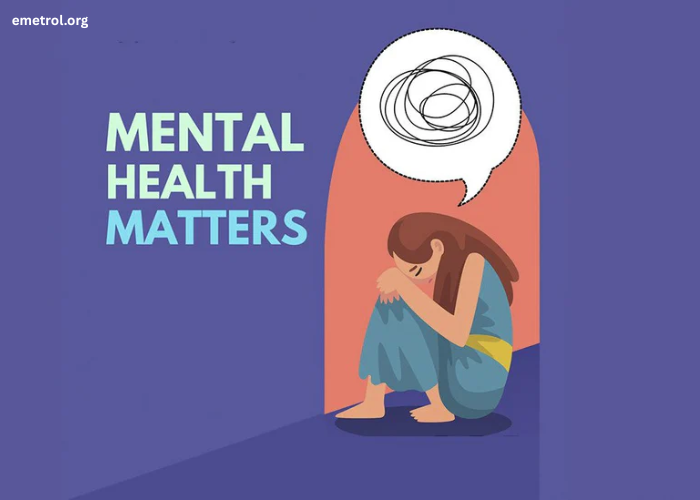Men’s Health Awareness Month: It’s Time to Speak Out and Take a Stand
Men’s Mental Health Month provides an opportunity to discuss the mental and emotional health of men. Usually celebrated in June, the month promotes mental health awareness, reduces stigma and encourages men to speak freely about their mental health. Many men suffer quietly with anxiety, depression and pressure over social expectations and judgement. That silence is what this observance is designed to break.
Mental health is concerned with the way a person think, feel and behave. But for much of the male population, communicating about how you feel is thought of as a weakness. As a result, most do not seek help or even acknowledge that they are not coping with life. Men’s Mental Health Month is working to rewrite this story by inspiring support, education and action.
Here are three takeaways:
For a man, how to share emotional pain is a different challenge.
Stigma about mental health deters men from seeking help.
Early awareness and open, honest conversations save lives.
Why Men’s Mental Health Month Matters Mental illness in men is real, damaging to families and less obvious.
Men’s Mental Health Month is needed because men often face mental health problems differently from women — and are less likely to talk about it. Men are more likely to die by suicide but less likely to seek mental health treatment, according to studies around the world. That’s a pretty serious gap that demands to be filled.
Men have been conditioned by society to “man up,” suppress feelings and be strong all the time. This belief has made so many men bury their emotions, driving them to deeper emotional issues, unhealthy coping mechanisms (addictions), or worse, self-harm. Communities, workplaces and families are urged to begin conversations, share resources and listen without judgment during Men’s Mental Health Month.
For example:
Here is a man who is the sole breadwinner for his family, and he is suffering. But feeling he has to be “the strong one” may make him unwilling to talk about it. It can lead to burnout or depression over time. But let him say things in a safe place, and he is more likely to go ask for help.
| Reason for Observance | Impact |
|---|---|
| To reduce stigma | Encourages men to share what they’re going through |
| To raise awareness | Assists people in recognizing symptoms and providing support |
| To improve access to help | Encourages therapy, crisis hotlines, and community programs |
| To prevent suicide and isolation | Offers lifesaving conversations and connections |
Reminder: Men need emotional support as much as anyone else. You can’t make pain vanish by hiding or refusing to acknowledge it.
What Are Some of The Most Common Mental Health Issues Affecting Men?
Men can struggle with a whole range of mental health issues. But the signs may not look like what you’d expect. Whereas women might express sadness outwardly, men are more likely to show mental distress as anger, irritability or a retreat into isolation.
Here are a few of the most common mental health struggles men experience:
Depression: On the surface, men may say that everything is fine, but you may not see deep despair or even feeling a sense of hopelessness because it is often covered up by a veneer of anger or silence.
Anxiety: Typically manifested as restless behavior, difficulty sleeping and overworking.
Substance Abuse — Some men turn to alcohol or drugs to deal with stress or trauma.
Post-Traumatic Stress Disorder (PTSD): Especially common among veterans or men who experienced trauma as children.
Suicidal Thoughts: Frequently concealed, but men are 3–4 times more likely to kill themselves than women.
Example:
A young man who works long hours may not recognize that the tiredness, fatigue, and headaches he is experiencing may be symptoms of depression. He has no idea how do ask for help or how to pay attention to the warning signs so he just grinds on until it completely gets in the way of his daily life.
| Mental Health Issue | How It Often Appears in Men | Possible Result if Ignored |
|---|---|---|
| Depression | Anger, tiredness, avoiding friends | Relationship issues, substance use |
| Anxiety | Restlessness, physical symptoms, irritability | Poor focus, work performance drops |
| PTSD | Flashbacks, aggression, isolation | Nightmares, trouble trusting others |
Note: Symptoms of depression and anxiety in men are frequently overlooked or misdiagnosed. You should watch closely for changes in behaviour.
Why Are So Many Men Afraid to Ask for Help?
If Men’s Mental Health Month exists, it is in large part because so many men don’t get help. It’s not just about being shy — it’s frequently about how masculinity is perceived by society. A lot of men are raised to be tough and not to show weakness.
Common barriers include:
Fear of Stigma: Men might fear being perceived as weak by others.
Ignorance: They may not realize that what they have is a mental health disorder.
Cultural Beliefs: In some cultures, discussing mental health isn’t an easy thing to talk about.
Limited Access to Services: Some don’t know where to find help, or they can’t afford it.
Let’s consider an example. A middle-aged man grappling with anxiety can say to himself that he just feels tired or stressed. Rather than talking to a therapist, he might drink or be quiet. This might get worse, and that could cause more serious problems.
| Barrier | Impact on Mental Health |
|---|---|
| Fear of being judged | Prevents men from talking about their feelings |
| Lack of knowledge | Delays treatment and worsens symptoms |
| Social expectations | Promotes silence over openness |
| Poor access to care | Leaves men without professional support |
Men’s Mental Health Month is trying to change that by raising awareness and promoting open conversations about feelings — without stigma.
What Can We Do About Men’s Mental Health?
The push to support men’s mental health begins with making safe spaces in which to have those conversations and encouraging open, honest talk. You do not need to be a doctor or therapist to help. Friends, family and communities all have important roles to play in helping men to feel supported.
Here’s how you can help:
Listen And Don’t Judge: When a man talks, listen to him. Don’t rush to “fix” it.
Discuss Mental Health: Make mental health something that is not taboo.
Promote Professional Help: Encourage a therapist the way they see a doctor—it’s normal.
Check In Regularly: A casual “How are you really doing?” can go a long way.
Be Patient: There are some men that need time to blossom.
Example:
If you see your brother retreating from the world, don’t pressure him — ask him to join you for a walk, or a cup of coffee. Then, gently, ask about how he’s feeling. Your care might even be his launchpad to getting help.
Here is a basic table of support strategies:
| What You Can Do | Why It Helps |
|---|---|
| Start a conversation | Paves the way for trust and honesty |
| Recommend therapy | Demonstrates it’s good to take the next step; shows there is help |
| Be present and patient | Gives emotional safety and support |
| Share mental health content | Encourages learning and reflection |
Reminder: Sometimes all we need to do is show up for someone. Your presence can mean everything.
What Are Some of the Activities That You Can Do in Men’s Mental Health Month?
Men’s Mental Health Month is a perfect time to host or participate in events that promote awareness and foster support. You can make a difference at school and in your community.
Here are some ideas:
Organize a Mental Health Talk: Bring in a male counselor or professional to talk to a group of guys.
Conduct a Social Media Campaign: Promote quotes, articles, and support statistics.
Host a Walk or Wellness Day: Pair physical healthy activities with mental health activities.
Create a Safe Space: Create group chats or events for men to have an open conversation.
Do some fundraising for mental health charities: Support free services for men.
Example:
A neighborhood gym could hold a mental wellness workshop following a workout session. With so many men already going to the gym, it’s a familiar environment where they might be more comfortable sharing themselves.
These kinds of activities signal that it’s fine to talk, and that help is there.
Conclusion
Men’s Mental Health Month isn’t just a campaign — it’s a life-saving movement. It illuminates an unspoken crisis that torments millions of men around the globe. In attending to the uncommon burdens men carry, by offering opportunities for open and supportive places in which men can share, we can help them heal and grow.
Every conversation counts. Every check-in matters. Whether you’re a man suffering emotional distress, or love someone who is, now is the time to speak out, listen closely and respond with compassion. Is is okay not to be okay, and help is always close at hand.
FAQ’s
Men’s Mental Health Month: What Is It?
June is Men’s Mental Health month, which aims to address mental health concerns that specifically impact men and end the stigma against men seeking help.
Why Can’t We Get Male Contraceptives?
Men not speaking up when it comes to mental health issues is something that affects so many due to fear of being misunderstood, cultural barriers, fear of being judged, or not being understood.
What Are the Most Common Men’s Mental Health Warning Signs?
Symptoms include anger, isolation, sleeping or substance abuse problems, and a tendency to avoid responsibilities or conversations.
How Can I Be Supportive to a Man Who Is Struggling Mentally?
Have some patience, do more listening than judging, recommend therapy, check in repeatedly. There is a big difference made by caring.
Is There Help Available For Men’s Mental Health?
Yes, there are several organizations that provide targeted support for men, such as Movember, HeadsUpGuys and local mental health clinics.



